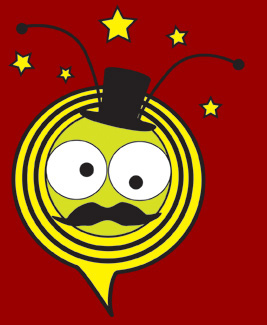
 D
D Z
ZBefore Boyhood came out, much was made about the time (10 years!) and attention that went into making a film about being a boy. The implied risk of documenting anything for a long period of time is obvious. What if something happens to one of your actors? What if something happens to you (the director)? What if, when all is said and done, what you're left holding is just profoundly, well... boring? It seemed a neat little trick, but certainly not a unique one (see the Up series or any of Truffaut's films featuring the character Antoine Doinel). In a sense, doesn't Sigourney Weaver pull off a similar stunt, performance wise, in the first 3 films of the Alien franchise? Let's not forget, Boyhood isn't a documentary, and these people aren't playing themselves maturing over the course of a decade.
Boyhood does, however, take on a rather difficult task. In a sea of coming of age films that give us a glimpse into a moment that progresses the maturing process, Boyhood attempts to bundle ALL of these moments together into something a little under 3 hours. The moments that the film chooses to highlight succeed in being intimate, private, small in scope but powerfully representative of what it means to grow up. For example: When the titular "boy" Mason discovers (on his birthday) that his father has sold the car that was promised to Mason when he turned 16, we suddenly feel ourselves identifying with the situation outside of the context of the car. What was it like when we realized that our parents were fallible, and that being an adult doesn't mean you have to keep your promises?
There are so many of these wonderful moments throughout the movie: Mason's mothers breakdown as he packs his things for college, Mason (on the verge of sleeping) inquiring of his father about the reality of magic, a camping trip with Dad before those kinds of trips become chronically uncool, etc. The bigger, more cliché moments are here too, divorces and a series of poor father figures, smoking weed at parties, high school graduations. The film falters slightly at times when trying to make things a little TOO tidy (i.e. a reunion between Mason's mother and a gentleman she gave some advice to years before feels a little... preachy, in regard to the power of words.) Overall, though, it seems intent on keeping things as honest as they can be, in the name of fictional entertainment.
The acting in Boyhood is pretty right on target. Patricia Arquette shines as Olivia, Mason's mother. The aforementioned breakdown scene is just the kind of well-executed moment that makes the film feel like it was perhaps privy to a few moments from our own personal lives. Ethan Hawke is casually cool as Mason's dad, a man who seems particularly bent on being, well, casually cool. Lorelei Linklater provides possibly my favorite performance in the film as Mason's sister Samantha, if only because she reminds me of so many of my own friends, growing up. Ellard Coltrane is very good as Mason. Sometimes, it feels like he's beginning to become too aware of himself as an actor... and then he appears to ironically grow out of it.
10 minutes into Boyhood, Coldplay's "Yellow" begins to play, and I caught myself chuckling a bit. In another film, this would be the kind of kitschy touch that would draw me out a film, reminding me, "This is of the past." However, in the hands of Richard Linklater, the chuckle was one of sentimental recognition, and not one tied to novelty; the recognition of how funny the past can feel in the present, and how wild it can feel to be transported, for just a moment, into what it felt like to be a boy again.
 B
BBoyhood is an experimental venture in modern realism. An unremarkable middle-class family's life is followed, revolving around the upbringing of a boy over a 12 year period. Filming actually took place of a 12 year period using the same actors to accentuate the realism. The simplicity of the story accentuates all the detailed moments of the characters' lives delivering a movie that is about life in its complexity.
The most fascinating part of the movie is seeing the actual actors grow and change through the movie, both in their physicality and in the complexities of their acting skills. For example, Patricia Arquette as Mom feels a little amateur in her acting at the beginning of the film, but grows with maturity and more believability towards the end. This results in a charming performance through the film until, finally, she gets to deliver a powerful and heart-wrenching "Oscar" scene at the end, thus sealing her inevitable Oscar win.
To emphasize the passage of time in a specific era, director Richard Linklater includes plenty of references to various technologies and political events, and scores the film with trendy music specific to each year of the film. All of this builds a sense of nostalgia. In fact, there is little plot here to distract us from this nostalgic texture. There are some light storylines dealing mostly with relationship struggles to add tension and substance, but Linklater mostly follows a more loose free style to permeate his film in order to create a sort of cinematic diary.
There are some rather cliché, heavy-handed scenes of domestic abuse thrown in the mix to add some drama, a variety of bad acting (some painful, some charming) pervades the film, and overall the film feels wholly unremarkable. However there is a refreshing air about the film, and the accomplishment of such a poetic venture and such a courageous attempt at long term filming should be heralded.
7/10
